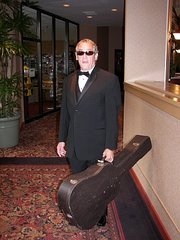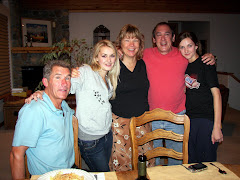I heard this song years ago and never forgot it. I had to google to find out again who first sang it -- Joe Jones -- and got to listen to it again on youtube. You can too: http://www.youtube.com/watch?v=E_FvVkcwqIs .
Talking, both aloud and internally, is a major component of my life. I can't seem to get my head to shut up even when my mouth agrees to.
This is not a unique problem. Meditators consider it a human hallmark: the monkey mind, it's called and if you watch Curious George on PBS, you'll understand how a monkey mind is all over the place and into everything under the sun.
I watch Curious George on PBS -- with my 20-month-old granddaughter, Kaitlyn. Now George himself can't talk, but he sure can "hee hee, hoo hoo, ha ha" for most of the 30 minutes that the program is on.
Sometimes Kaitlyn gets going with her own gibberish, which soon will be replaced by several sentences strung together. And then several paragraphs. And in the not too distant future, alas, she will have the same difficult time we all do getting her mind to quiet.
But I, the wise gma (my shortened, hip version of grandmother), am wondering if I can wire in a direct link to silence for my little one, now, before the mind forgets how to be still.
"Learn to be still." Don Henley sang that one when I was all grown up. (You can listen to the song at http://www.youtube.com/watch?v=F_f614PDz38 ) but here is the first verse:
It's just another day in paradise
As you stumble to your bed.
You'd give anything to silence
Those voices ringing in your head.
You thought you could find happiness
Just over that green hill.
You thought you would be satisfied
But you never will;
Learn to be still ...
Can I help Kaitlyn find the still small space inside her?
When we were in the car last week I realized that, at the very least, I didn't have to be part of the culture that encourages all this chatter.
She sits in the back of the car in her infant safety seat, alone. When she was a baby, I pretty much let her lie there quietly, but now that she's jabbering, I have been thinking that she needed company, stuck back there all alone. So anytime we we were driving, I would talk to her and sing to her and reach back at stop lights and touch her. In short, I was the antithesis of stillness with this precious spirit.
One day, when we had a lot of errands to run and my mouth was running even faster, I realized it was tiring me to keep up the chatter patter. So I shut up. And in the moments that followed, I realized that shutting up was the biggest gift I could offer Kaitlyn.
So now when we go someplace, I belt her into the seat and tell her she can enjoy this quiet time in the car, and I get in the front seat and I enjoy some quiet time in the car. No radio. No CD. No talking.
No touching, too, I discovered. When we get quiet and are centered in our own spirit, we don't want distractions. Neither does Kaitlyn. Yesterday I was driving her to the store, both of us quietly enjoying the sunshine streaming into the warm car, and I reached back to pat her leg.
She looked so blissful, thumb in mouth, eyes slightly closed. I wanted to touch her.
So I patted her thigh and she shook my hand off. Immediately I understood. The baby was completely immersed in her own space.
For her, stillness still comes naturally. I thought I would be the teacher, but she ended up perfectly modeling the lesson for me.
Shhhhh. Be still and know. Like babies do.













